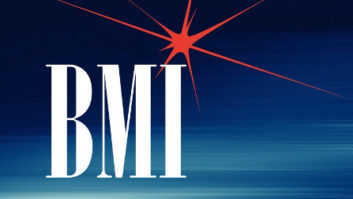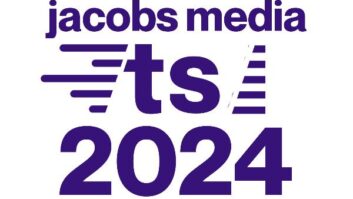
Hubbard Radio President/CEO Bruce Reese
Hubbard Radio President/CEO Bruce Reese recently testified on the behalf of the NAB before the House Judiciary Subcommittee on Intellectual Property, Competition and the Internet. The topic was streaming music royalties.
Here are excerpts of his testimony. Hubbard has 20 stations in five markets. Reese chaired the NAB joint radio and television boards from 2004 through 2006.
In the broadcast community, there is a wide array of opinions as to the viability and value of streaming. Some broadcasters see streaming as an essential, burgeoning revenue stream. Others regard it as tangential but also important to their core business of over-the-air broadcasting. Still others consider it as being not worth the investment, since it is nearly impossible for broadcasters’ streaming revenue to exceed the associated costs and royalty payments.
Regardless of the camp, every broadcaster’s expansion into Internet radio is impeded by the unreasonable costs of webcasting royalties. Whether you are a large broadcaster or small broadcaster … the revenue that can be generated from streaming simply does not offset the costs. This imbalance is impeding the growth of Internet radio among broadcasters.
Hubbard Radio streams our stations primarily as a service to our over-the-air listeners. We stream all our stations in all our markets. We believe that listeners expect to be able to access our stations through the Internet in addition to listening to their radios, and in a way we consider the cost of streaming a promotional expense. Nevertheless, we work very hard to monetize the streams.
Generally speaking, on a cumulative fiscal basis, we break even, with modest profits from the revenue from streaming our non-music stations offsetting the losses from streaming the music stations. Each year we revisit our streaming strategy and consider anew whether it’s worthwhile to continue the service.
Since webcasting began, the chief obstacle to developing a profitable streaming model has been the egregiously high royalty rates for sound recordings. The streaming rates that have resulted from proceedings by the Copyright Royalty Board under the so-called “willing buyer/willing seller” standard have been artificially inflated, to the detriment of both services that wish to stream and the songwriters and performers who would benefit, in the form of increased exposure and royalties, from increased streaming.…
Broadcasters favor abandoning the “willing buyer/willing seller” standard and transitioning to the “801(b)(1)” standard for setting sound recording performance royalty rates. The 801(b)(1) standard (so named because it is found in that section of the Copyright Act) has effectively, efficiently and equitably balanced the interests of copyright owners, copyright users, and the public for decades, in various contexts and proceedings.
As currently codified, this standard considers the interests of all stakeholders and the public, recognizes the value of all contributions of licensors and licensees, and has long been accepted and ratified by Congress. It reflects a congressional intent not to set rates so onerous that they would stifle new businesses and uses of creative works. …
But the flaws in the CRB rate-setting process go beyond the excessively high royalty fees themselves. Broadcasters cannot create predictable business plans for streaming if we don’t know with any reasonable degree of certainty what future rates will be. Further, the broadcasting business has been one built on fixed costs. It costs a radio station very little more to reach its millionth simultaneous listeners than it costs to reach its first. The statutory streaming fees, which increase on a per person, per listener basis, with none of the advantages that scale brings to most business models, are difficult to reconcile with the standard business practices of the broadcast industry.
There is also a clear need to improve and update some of the CRB rules and procedures. This includes how stations report their music usage and how evidence is presented in CRB rate-setting proceedings.
Current rate-setting ‘dysfunctional’
Recent developments have further illustrated the dysfunction of the current rate-setting procedures. The constitutionality of the appointment of the CRB itself was recently called into question with an appeal before the D.C. Circuit Court of Appeals. And an additional complication to the broken CRB system came earlier this year when SiriusXM filed a lawsuit against the CRB’s chosen collective, SoundExchange and A2IM [the American Association of Independent Music] claiming antitrust violations. This suit alleges that SoundExchange and A2IM conspired to prevent SiriusXM from negotiating direct licenses, which would take music out of the statutory royalty scheme administered by the CRB and SoundExchange.
If anything, efforts should be made to facilitate and encourage direct licensing between the recording industry and those streaming music. Certain performers have argued that direct licensing would reduce their compensation. However, I would respectfully submit that, to the extent this subcommittee might consider this to be a significant issue, it is imperative to evaluate performers’ royalty payments in the larger context of their various streams of income, including how they are compensated by record labels.
No ‘Performance Tax’
In beginning this important dialogue over how best to encourage the growth of Internet radio, Congress should not allow this debate to be bogged down by past fights over the performance tax, to which NAB remains staunchly opposed. … Record labels and performing artists profit from the free exposure provided by radio airplay, while local radio stations receive revenues from advertisers that purchase airtime to sell their products and services.
Despite technological improvements, radio broadcasting retains the same basic character that it has had for decades. It is local. It is free to listeners. It is supported by commercial advertising. Local stations use on-air personalities and DJs to differentiate their programming, including by commenting on the music they play. …
Many digital audio transmission services are eager to associate themselves with radio’s rich history and consumer familiarity and affection, styling themselves as offering “radio” services. But simply marketing digital audio transmission services as “radio” does not make them so.
In 1995 and 1998, Congress recognized the vast differences between digital audio transmission services and local radio when it created a limited digital sound recording performance right for those new services that diverged so dramatically from the nature of traditional radio.
Now challenged by the economic downturn and financial threats posed by the rapidly changing digital environment, the recording industry is in search of additional revenue streams. But it is important to recognize that broadcasters are not responsible for the recording industry’s financial woes.
Broadcasters have continued to do their part in presenting music to the public in the same manner that they have done for decades. Particularly in the current highly competitive environment, where broadcasters are struggling to adapt their own business models to address the realities implicit in new media, it makes little sense to siphon revenues from local broadcasters for record labels to prop up the recording industry’s past failings and ill-advised business decisions. …
The radio industry looks forward to a robust future that embraces the fundamental nature of broadcasting, as well as new opportunities arising from evolving digital technologies. But as we seek to develop business models that include streaming, we are continually thwarted by one consistent problem — statutory royalty rates and the dysfunctional rate-setting system and procedures.
Comment on this or any story. Email[email protected].












